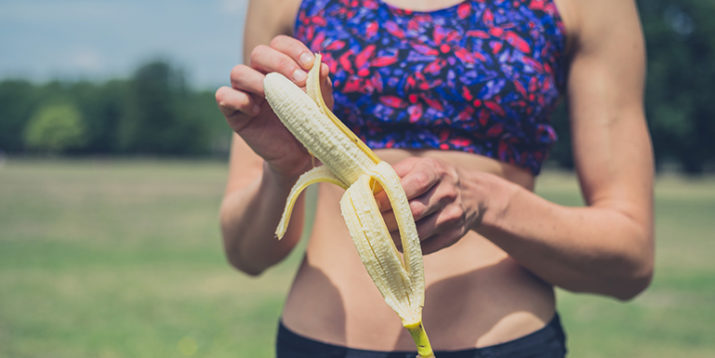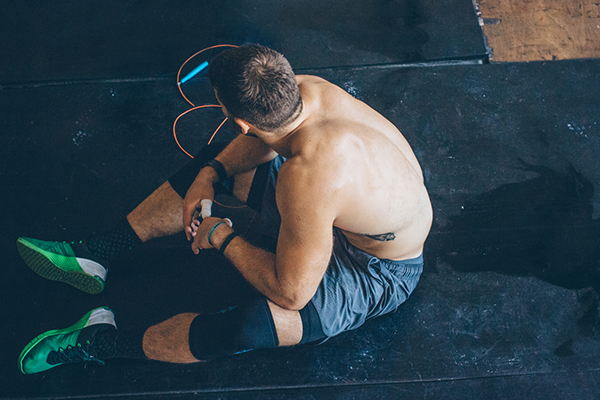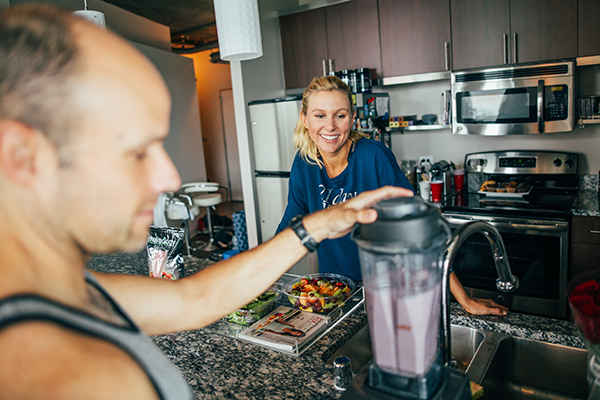Are Bananas Really a Great Recovery Food?

There are plenty of reasons why everyone eats bananas to recover after a workout. They come with a built-in wrapper, they’re inexpensive, you can eat them with one hand, and they’re 100 percent free of weird ingredients or additives. Oh, and they’re delicious.
Yup, the yellow fruit has a whole lot going for it. But are bananas the best way to refuel after a tough sweat session?
Sorry, probably not. Here’s why — and what you could try eating instead.
How Bananas Can Help With Recovery
It’s true that bananas deliver some of the stuff your body needs post-exercise. “The simple carbohydrates in bananas rapidly replenish muscle glycogen, the form of carbohydrates stored in muscle tissue that’s used during exercise,” says sports nutrition expert Marie Spano, M.S., R.D., C.S.C.S., C.S.S.D., who consults for the Atlanta Hawks.
They don’t deliver everything, though. Bananas fall short on the protein your muscles need to repair and grow stronger after a hard workout. They also don’t offer much in the way of sodium to replenish the salt you lost through sweating, Spano says.
But what about potassium — aren’t bananas a top source? A medium banana will deliver 422 mg of potassium, a mineral that’s also lost through sweat. But it’s not crucial to replace lost potassium ASAP, says Spano. As long as you’re getting it throughout the day (from bananas, but also from sweet potatoes, avocado, spinach, and even plain yogurt), you’ll be all set.

What to Eat After a Workout
So if bananas alone won’t cut it, what should you be eating instead (or in addition)? Turns out, there’s not one post-workout snack that’s perfect for everyone. “You need to consider many factors, including the type of workout, the duration, and the intensity,” Spano says.
Jogged, practiced yoga, or rode your bike at a relaxed pace for half an hour? Chances are, you probably didn’t exercise hard enough to warrant a recovery snack. Rehydrate with plenty of water now, and plan to refuel with whole, nutrient-dense foods at your next meal or planned snack.
It’s a different story if you’re doing endurance work or resistance training. Gobble up both carbs and protein after a long endurance effort. For the carbs, the amount you need can vary (you’ll continue to replenish glycogen throughout the day), but for protein, recent research shows 20 grams is the magic number for the average person.
After resistance work, your glycogen won’t be as tapped as after long bouts of endurance exercise, so focus on those 20 grams of high-quality protein.

Recovery Foods
- Protein smoothie: Blend whey or soy protein powder with fruit and water or 2 percent or whole milk to make a creamy shake. Pick any powder you like, as long as it delivers at least 20 grams of protein per serving and is free of artificial flavors and sweeteners, says Spano.
- Low-fat chocolate milk: Sure, it’s a mainstay in the elementary school cafeteria. But low-fat chocolate milk serves up the right balance of protein and carbs that findings show can promote muscle recovery and slow muscle fatigue during future workouts.
- Beachbody Performance Recover Post-Workout Formula: This high-quality protein blend gets the job done, and is formulated specifically to help you recover. Just mix it with water, shake it up, and sip.
- Fruit and Greek yogurt: Bananas, grapes, or berries all work. Stick with plain Greek yogurt and add sweetness with the fruit.
- Chicken or turkey wrap: Wrap julienned (matchsticks) vegetables with lean chicken or turkey slices.
